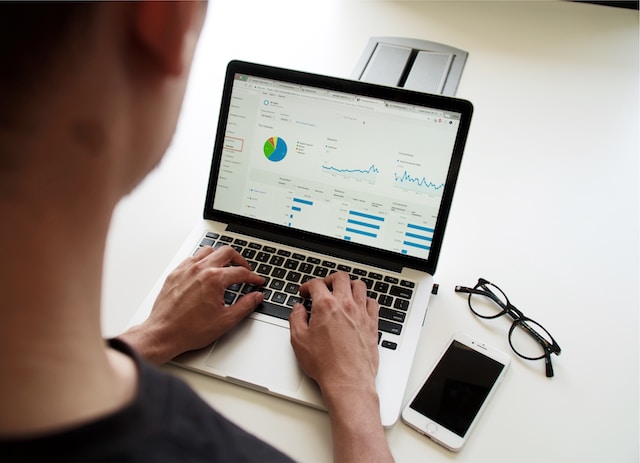
Understanding the Modern Data Journalism Landscape
Imagine transforming complex numerical information into compelling narratives that illuminate hidden societal patterns. This is the world of data journalism—a dynamic intersection where technology, storytelling, and analytical thinking converge to create powerful, evidence-based reporting.
Data journalism has rapidly evolved from a niche specialization to a critical component of modern media. As digital platforms proliferate and information becomes increasingly complex, data journalists serve as essential translators, converting raw statistics into meaningful human experiences.
The Emergence of a Digital Storytelling Profession
The roots of data journalism trace back to investigative reporters who recognized the power of statistical analysis in uncovering systemic truths. What began as rudimentary number-crunching has transformed into a sophisticated discipline leveraging advanced technological tools and computational methodologies.
Early pioneers like Philip Meyer, often considered the godfather of precision journalism, demonstrated how statistical techniques could enhance traditional reporting. His groundbreaking work during the 1960s and 1970s showed how social science research methods could be applied to journalistic investigations, setting the stage for modern data journalism.
Essential Skills for Aspiring Data Journalists
Technical Proficiency: Beyond Traditional Reporting
Becoming a successful data journalist requires a multifaceted skill set that blends technological expertise with narrative creativity. While traditional journalism emphasized writing and interviewing skills, contemporary data journalism demands a more nuanced approach.
Programming languages like Python and R have become fundamental tools in a data journalist‘s arsenal. These languages enable professionals to extract, clean, analyze, and visualize complex datasets efficiently. Understanding computational thinking allows journalists to approach stories with a more systematic and rigorous methodology.
Web Scraping: The Gateway to Digital Information
As a web scraping expert, I cannot overemphasize the importance of mastering data extraction techniques. Web scraping represents more than just a technical skill—it‘s a strategic approach to gathering information in the digital age.
Modern web scraping involves sophisticated techniques that respect ethical boundaries while efficiently collecting publicly available data. Tools like Beautiful Soup, Scrapy, and Selenium have revolutionized how journalists access and process online information.
Analytical Thinking and Statistical Literacy
Data journalism isn‘t merely about collecting numbers; it‘s about understanding the stories those numbers tell. Developing strong statistical literacy means learning to interpret complex datasets, recognize potential biases, and draw meaningful conclusions.
This requires more than mathematical prowess—it demands critical thinking, intellectual curiosity, and a commitment to objective analysis. Successful data journalists approach each dataset as a potential narrative waiting to be uncovered.
Educational Pathways and Skill Development
Formal Education vs. Self-Directed Learning
While traditional journalism degrees offer valuable foundational knowledge, the most successful data journalists often emerge from diverse educational backgrounds. Computer science, statistics, social sciences, and even design disciplines can provide unique perspectives in data storytelling.
Online learning platforms have democratized access to specialized skills. Platforms like Coursera, edX, and DataCamp offer comprehensive courses in data analysis, programming, and visualization techniques. These resources allow aspiring data journalists to build competencies at their own pace.
Recommended Learning Trajectory
Foundation in Data Literacy
Begin by developing a strong understanding of statistical concepts. Learn to read and interpret basic statistical representations, understand probability, and recognize common data visualization techniques.Technical Skill Acquisition
Progressively build programming skills, starting with user-friendly languages like Python. Focus on libraries specifically useful for data manipulation and analysis, such as Pandas and NumPy.Visualization and Storytelling
Master tools like Tableau, D3.js, and R‘s ggplot2 to transform raw data into compelling visual narratives. The ability to create intuitive, engaging visualizations is crucial in modern data journalism.
Practical Implementation Strategies
Building a Professional Portfolio
Your portfolio represents more than a collection of past work—it‘s a dynamic representation of your analytical capabilities. Focus on projects that demonstrate:
- Complex data extraction techniques
- Innovative visualization approaches
- Compelling narrative construction
- Ethical data handling practices
Networking and Professional Development
The data journalism community is collaborative and supportive. Engage with professional networks through:
- Online forums like Reddit‘s r/datajournalism
- LinkedIn professional groups
- Annual conferences and workshops
- Open-source collaborative projects
Emerging Technological Trends
The Future of Data Journalism
Artificial intelligence and machine learning are rapidly transforming data journalism. Advanced algorithms can now process massive datasets, identifying patterns and insights beyond human computational capabilities.
Blockchain technologies are introducing new possibilities for data verification and transparency. As misinformation becomes increasingly sophisticated, data journalists will play a crucial role in maintaining informational integrity.
Ethical Considerations and Professional Responsibility
Navigating the Ethical Landscape
Data journalism carries significant ethical responsibilities. Always prioritize:
- Individual privacy protection
- Transparent methodological reporting
- Avoiding sensationalism
- Presenting balanced, contextual narratives
Conclusion: Your Journey Begins Now
Becoming a data journalist is more than acquiring a set of technical skills—it‘s embracing a philosophy of curiosity, rigor, and storytelling. Your path will be unique, shaped by your interests, experiences, and commitment to understanding our complex world.
Remember, every dataset tells a story. Your job is to listen carefully and translate those numbers into human experiences that inform, inspire, and illuminate.
Final Words of Encouragement
Stay curious. Stay persistent. The world of data journalism awaits your unique voice and perspective.










